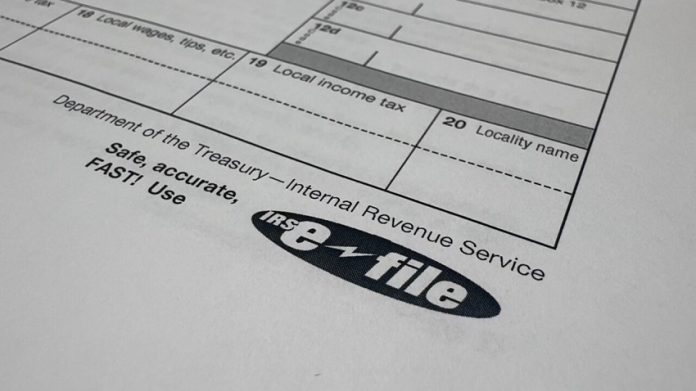COLORADO SPRINGS, CO — With the tax filing deadline just around the corner, the Internal Revenue Service (IRS) is urging last-minute filers to be cautious of common tax scams. As millions of taxpayers prepare to file, the agency is reminding the public to avoid falling victim to fraudulent schemes, especially those circulating on social media.
According to the IRS, scams related to tax season are a persistent issue, with new tactics emerging each year. One of the agency’s growing concerns this year is the spread of false information on platforms like Facebook, Twitter, and Instagram. A prime example is the promotion of the so-called “self-employment tax credit,” which the IRS has clarified does not exist. Additionally, fraudsters are encouraging taxpayers to overstate their withholding amounts, leading them to underreport their taxable income.
Jeanne Rohrer, an IRS spokesperson, emphasized that taxpayers should be wary of any communications they receive through social media. “The IRS does not contact taxpayers or take payments on social media,” Rohrer stated. “The agency does not threaten individuals or leave pre-recorded voicemails. If you think you’ve encountered a red flag, reach out to us directly. We’ll verify any concerns and guide you accordingly.”
For those who realize they have been deceived or made mistakes on their tax returns, the IRS offers a way to correct errors. Rohrer explained that taxpayers who have filed incorrectly due to a scam or inadvertent mistake can amend their tax returns. “They can go back in and amend it once they find out that they were a victim of a scam or made an error,” she said.
Common mistakes include misspelled names, incorrect social security numbers, filing under the wrong status, and simple math errors. The IRS urges taxpayers to double-check their returns to avoid such issues. Filing electronically and choosing direct deposit for refunds can also reduce the risk of errors.
The IRS offers a variety of free online tools to assist taxpayers. These include services to check the status of refunds, help with tax preparation, answers to tax law questions, and resources for researching tax law. Rohrer encouraged taxpayers to visit IRS.gov for these tools and for information on how to file on time or request an automatic six-month extension.
With the April 15th deadline fast approaching, the IRS is working to ensure that taxpayers have the resources and guidance they need to file their taxes accurately and avoid costly mistakes.
For more information, taxpayers are encouraged to visit the official IRS website or contact the agency directly for assistance.



